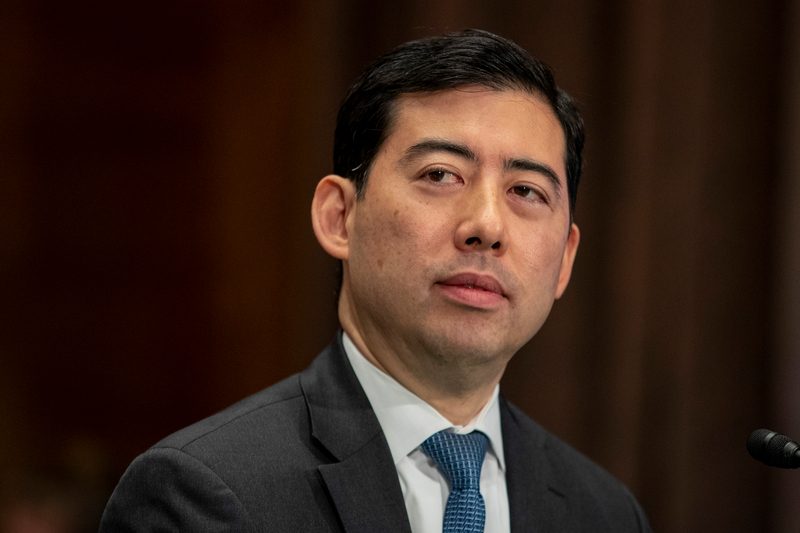The UK-based banking and brokerage firm, Laidlaw and Company Ltd., has settled with the SEC over failure to supervise and Regulation Best Interest (Reg BI) violations. The SEC imposed a civil penalty of disgorgement, instructing the business to produce the net profits from its violations, which will be distributed to harmed investors to whatever extent feasible.
As part of a consent order that was imposed by the state of Connecticut and its Securities and Investments Division, Laidlaw must engage an independent consultant to conduct a comprehensive evaluation of its operations and the actions of its registered representatives, especially with respect to issues associated with these violations.
Failure to supervise
The SEC said Laidlaw failed to develop and implement reasonable supervisory policies and procedures, in that the firm did not have a system to determine whether the direct supervisor of registered representatives (called “registered representative 1, 2, 3 and 4” in the SEC’s order) was carrying out his/her responsibility to supervise the two registered representatives with respect to making suitable recommendations to nine customers.
Laidlaw therefore failed reasonably to supervise registered representatives 1 and 2 with a view to preventing and detecting violations of the antifraud provisions of the federal securities laws within the meaning of Section 17(a) of the Securities Act and Section 10(b) of the Exchange Act, and Rule 10b-5 thereunder, the SEC said.
Specifically, in nine customer accounts, registered representatives 1 and 2 recommended an in-and-out trading strategy that grossly exceeded the cost-to-equity ratio and annual turnover rate thresholds indicative of excessive trading, the SEC alleged.
The representatives did not have a reasonable basis to believe their in-and-out trading strategy was suitable for any customer given the associated high costs that allowed virtually no change of a customer achieving even a minimal profit, the SEC said.
Risk and active trading
The SEC said Laidlaw, through registered representatives 3 and 4, recommended a series of investment recommendations to six retail customers that was not in their best interest. The strategy involved frequent in-and-out trades that placed the broker’s interest in generating commissions and fees ahead of the customers’ interest in making a profit.
With respect to one customer, the trading also was excessive in light of the customer’s investment profile, the SEC said. With the other five customers, the fact that their investment profiles reflected a higher tolerance for risk and active trading, the SEC noted that this fact did not relieve Laidlaw and its registered representatives of its care obligation with respect to the recommendations it made.
“Where a retail customer expresses a desire for ‘active trading,’ a broker-dealer may take this factor into consideration when evaluating a recommendation; however, the broker-dealer will nevertheless need to reasonably believe that a series of recommended transactions is in the best interest of the retail customer,” the SEC said, quoting from the Reg BI rule in the Federal Register.
Reg BI and the care obligation
Reg BI requires that a broker, when recommending securities transactions to a retail customer “act in the best interest of the retail customer at the time the recommendation is made, without placing the financial or other interest of the broker … ahead of the interest of the retail customer”.
Reg BI sets forth a “care obligation”, which requires that such a broker exercise “reasonable diligence, care, and skill to … [h]ave a reasonable basis to believe that a series of recommended transactions, even if in the retail customer’s best interest when viewed in isolation, is not excessive and is in the retail customer’s best interest when taken together in light of the retail customer’s investment profile and does not place the financial or other interest of the broker … ahead of the interest of the retail customer.”
Cost-to-equity ratios and annual turnovers
The cost-to-equity ratios and annual turnover rates that resulted from the series of recommendations made to the six customers were all in excess of the thresholds courts have found to be indicative of excessive trading, the SEC said. And the excessive trading made the firm some decent money. It generated approximately $445,860.30 in commissions and fees, with approximately $242,615.69 of that paid to Laidlaw, and the rest paid to registered representatives 3 and 4.
Author’s note
Although Reg BI has been around for a couple of years, the SEC noted in its 2024 exam priorities document released last month that its main attention will be determining whether broker-dealers have established, maintained, and enforced written policies and procedures to achieve compliance with Reg BI as a whole. This includes considering whether the written policies and procedures are reasonably designed based on the costs, risks, and rewards of the securities and investment strategies that the broker-dealer recommends to customers.

















